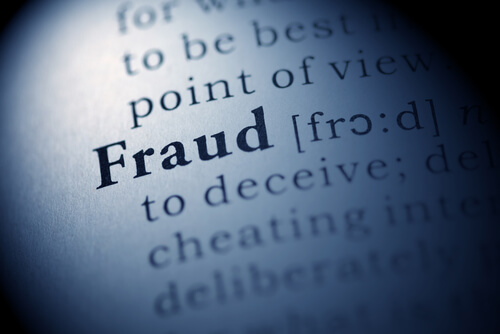Financial crimes come in many forms, covering a wide umbrella, from simple shoplifting charges to large-scale corporate crime. Although typically non-violent, financial crimes are often some of the most harmful, despite not being considered serious by the general public.

Whether you’re looking for information on white collar crime bail bonds or simply wish to learn more about financial crimes in CT, you’ve come to the right place. In this article, we will discuss some of the most common financial crimes, as well as provide insight into the typical bail amounts for such charges. Read on.
What is considered white collar crime?
White collar crimes are considered by many to be synonymous with financial crimes. The term is typically used to refer to financial fraud, money laundering, bribery and all kinds of embezzlement crimes. Essentially, both financial and white collar crimes are non-violent offenses that, ironically, tend to be the most harmful, both in terms of their impact on the US economy and the wellbeing of the community.
What are the examples of financial crimes?
Financial crimes are committed by individuals or groups for financial gain. There are numerous types of financial or white collar crimes, with some of the most common being:
- Bankruptcy fraud:
Committed by individuals or businesses, bankruptcy fraud involves misleading creditors, concealing assets, filing multiple bankruptcy claims, and falsely claiming bankruptcy.
- Credit card fraud:
This type of fraud involves unauthorized credit card use to make purchases. The card doesn’t have to be stolen for the crime to be considered credit card fraud.
- Bribery:
This crime involves an attempt to sway the opinions and decisions of an individual or corporation by promising them, giving them, or taking from them money, favors, or anything else of value.
- Counterfeiting:
Manufacturing fake currency or modifying genuine currency is a financial crime known as counterfeiting.
- Embezzlement:
Embezzlement occurs when an individual or group steals funds they were entrusted with for their own benefit.
- Identity fraud:
Stealing someone’s personal information with the aim of opening a credit card account, making purchases, applying for loans, or committing crimes is considered to be identity fraud.
- Insurance fraud:
This type of fraud refers to the act of filing exaggerated or artificial claims to an insurance company. A fraud crime may involve an incident that never happened, grossly misstated damage, and other similar exaggerations.
- Tax fraud:
Examples of tax fraud may include not paying taxes, not filing a return, failing to report income, and similar acts of tax evasion or misrepresentation. Depending on the specific circumstances, tax fraud may be considered to be either a federal or state offense.
How much is bail for financial crimes?
Considering that financial crimes can range in scale and severity, the bail amount can vary greatly as well. In Connecticut, a judge will calculate the bail based on factors such as the severity of the crime, the defendant’s record, employment and family circumstances, the defendant’s personality and mental health, and the impact of the crime on the community.
Bail for financial crimes is often much larger than bail for other crimes, due to their typically large scale. This is why most individuals charged with a white collar crime choose to hire the services of a bail bondsman.

We offer confidential white collar crime bail bonds across CT
BailCo Bail Bonds Manchester is an established bail bond company offering services across Connecticut. Our dedicated and courteous bondsmen and women are at your service 24/7, whether you’re located in New Haven County or any other part of CT. We can secure your release no matter the type of crime you or your loved one were charged with. Schedule confidential, affordable, and efficient bail bond services today.
